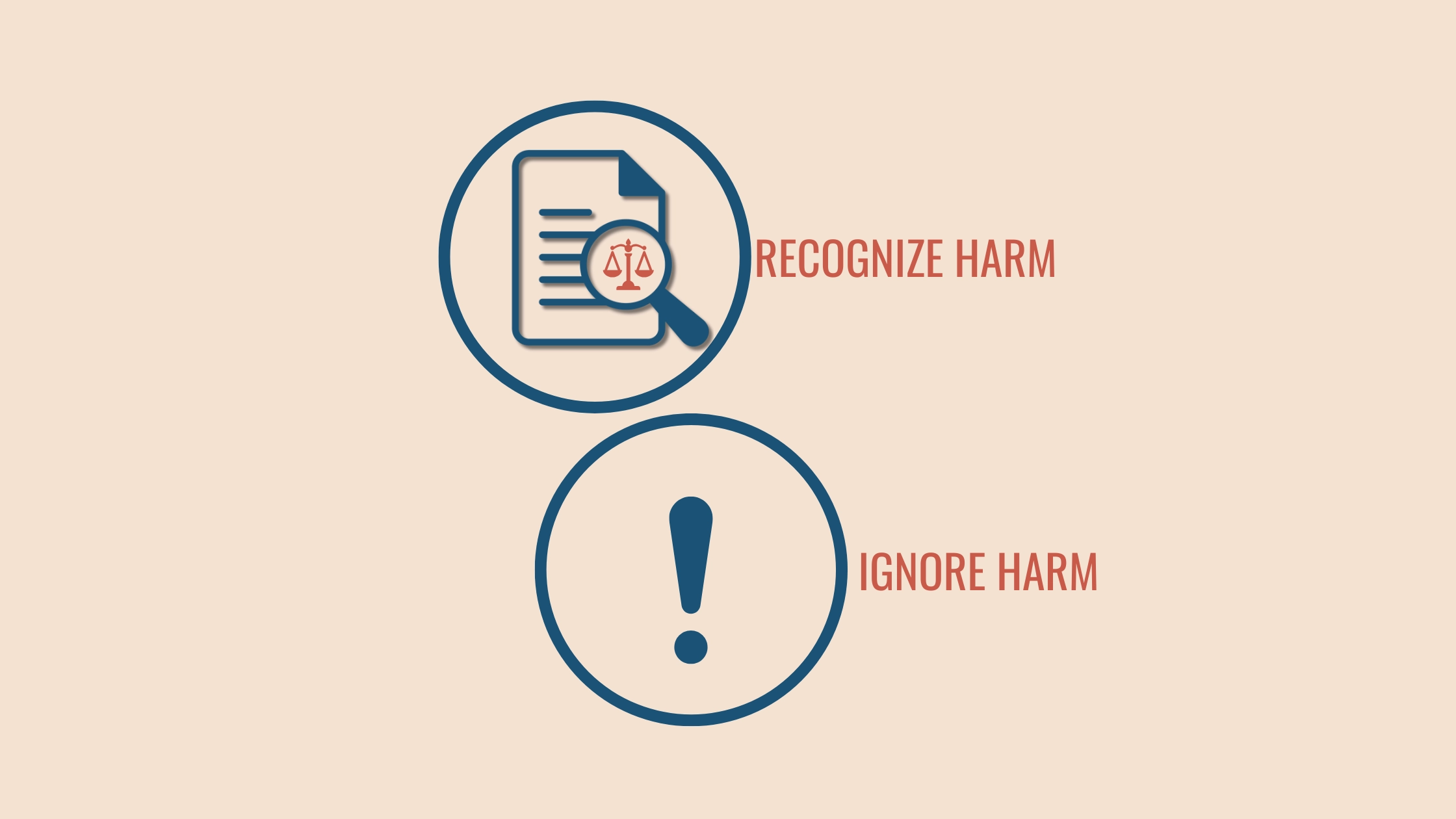An Illustration from Title 59 - Education
The purpose of knowing and recognizing special purpose, topic-specific, and dangerous vocabulary and hidden agendas in legislation is to be able to point out clearly and specifically where a bill will cause harm. The insight and clarity obtained can lead to a treasure trove of useful feedback very much needed by South Carolina lawmakers. With proper direction and assistance they may understand and realize the impacts of a specific bill. Further, such feedback may force them to think about the ramifications of how they vote on targeted laws that will hurt their constituents and the State of South Carolina. Helping them see the future implications (unintended consequences) of any bill may clarify for them why they must stop not just one bill, but almost every other attempt to create more law.
Rather than a treasure trove of valuables, vocabulary alone, more often than not, reveals a devil’s brew of caustic and potentially deadly poisons to freedom, economic well-being, and principles and values that have sustained our country and state and protected our society. A case in point, based on educational law and proposed bills, follows:
VOCABULARY
An abbreviated list of vocabulary that should jump right off the page when reading an education bill is attached to this article as an appendix. These words, and many others, suggest or identify dangers within current or proposed law. Words and their meanings also expose underlying rationale and hidden agenda within most bills, misleading and indoctrinating legislators to follow proposals they may not be able to critically examine. Such words further infiltrate numerous underlying acts, regulations, frameworks, and state standards which are harder to locate and examine but have the power of law behind them. In many cases these underlying embellishments are more dangerous than the statute itself.
In addition, because of a variety of flaws in the “system,” supporting regulations very often fall outside the control of both the people and the legislature. This means our schools are run by many people for whom we can’t vote, don’t know, can’t find, and will never be able to influence. We must address our concerns vigorously to legislators who expand this mess.
An army of people should be looking to expose every dangerous word and consequence instead of a tiny group. Most parent activists are often distracted by issues and activities that have no bearing on the laws and futilely present their grievances to school boards with little or no real power. Laws ultimately control everything and are passed almost non-stop for at least four months in Columbia every year. Legislation must become a target for patriots.
TRENDS
Every trend in Tip Two runs rampant through education law and will not all be listed here. This is not an exhaustive list. Specific references to Title 59 and clarification accompany specific education trends follow:
State Control by government bodies and associated agencies
Particular dangerous in education, as the rearing of children is a critical piece of sustaining our culture and values and maintaining the rights and freedoms of parents.
See: 59-5-69 State Board of Education 1942; South Carolina School Boards Association; South Carolina Education Improvement Act of 1984 (A512); Education Oversight Committee; Office of South Carolina Financial Literacy 2006; School Improvement Councils 1977-1993; Interstate Commission on Educational Opportunity for Military Children 59-46 2010; Read to Succeed Office 2014; Office of First Steps to Readiness 2014
Erosion of Parental Responsibility/State Provisions to Replace Family Responsibilities
Unfortunately, as the State provides more supports and “benefits” for parents and children, it naturally erodes the effort and responsibility parents will exert to meet these needs themselves, dumping huge costs and provision of services on taxpayers and the State.
59-1-450; 59-28-110(3)
Usurpation of Parental Rights, Control, Lack of Transparency
Not only does the law supersede local choices, it clearly restricts transparency. Very limited and generally difficult access, is offered to parents, but realistically NO meaningful input or access is granted to citizens who are forced to pay for the educational bureaucracy.
59-19-510, 560; 59-28 Act 402 2000; 59-152 Act 152 2018; 59-152-25(E)(G); 59-152-33 Act 287
Whole School, Whole Community, Whole Child
This denotes the global goal of cradle to grave continuing indoctrination that has crept into US education (not just public education) today. It is being embedded into education law while no one is looking or questioning. The State Department of Education is complicit in this initiative. It will enable schools to be centers for community resources, activities, services, etc. to facilitate state take over of family freedom and choice. Amazingly, this trend can be seen in textbooks from art to social studies, i.e. every course of study..
59-1-380(D); 59-19-125; 59-19-270; 59-155-140 (B)(2)(f); 59-155-140(A)(3); 59-155-190; 59-156-230
1984 SC Education Improvement Act, 2014 Act 284
Requirement that All Children be Serviced by Public Schools
This is also evident in the provision of special education services that fall under the purview of public schools and public funding. The push to offer extensive and comprehensive services to students in public schools is enabling government schools to increase their attractiveness and convenience for parents.
59-1-10 1962-2022; 59-46
Use of Special Education, Disadvantaged, Racial or Cultural Groups, and other identified special interests to extend a targeted agenda for every child
Special education in particular, by using confusion about this field and emotional manipulation to deter any who question the motives here, enables the requirements for screenings, surveys, psychological interventions, intimidation by educators toward all parents and other means to deflect the focus from the overarching extent of control this provides to a state directed machine, i.e. government-run education.
59-21 Articles 5 & 7; 59-28-140(1)(a); 59-29-55; 59-33 Article 5 Dyslexia Screenings Act 213***; 59-19-350
State Standards and Curricula as Law
The word ‘standards’ appears in the statues and is a clear indicator that these regulations have the force of law. The law also includes within the statutes specific guidelines for instruction, particularly at the college level, that directly impact what and how some subjects will be approached.
59-5-60(3),(6),(7); 59-10; 59-29 A275 2014; 59-29-120,130,140*
Age or Grade Inappropriate
“Age Appropriate” appears increasingly in law, standards, regulations, public statements, etc. However, in far too many cases, this is lip service. For often nefarious purposes, the education establishment, fueled by the State Department of Education and other lobbyists, has discovered that using this phrase comforts and sometimes silences critics. It should be a red flag, as less and less that happens in public schools is age or grade appropriate.
This trend also allows schools to ignore individual developmental differences, unique aptitudes, abilities, suitability of curricular content, etc.
59-139; 59-152
Less Content/More Thought Control
Particularly evident throughout Chapters targeting subjects, textbooks, and other
59-1-50
Absurd Expectations for ALL Students/Standardization of Outcome (Equity-based trend)
59-155-140(A)(1)(h)
Increasing Data Collection
Invasion of Privacy
59-33-520(A)(2); 59-29-182; 59-139; 59-152-25(G)
Testing/Screening
Not just on a local level, but under state control, reporting, data collection and monitoring
59-155-160(5)(d)
Social/cultural Engineering/Indoctrination
Shape human interactions, activities, and thoughts (SEL, CSE, CRT, DEI, etc.)
59-29-130(A)(1)(a); 59-29-179, 183, 240*; 59-32-5 Comprehensive Health Education Act 1988, 59-32-30(A)(5)**; 59-152-25; 59-155-150(A)
2016 A192 South Carolina Founding Principles Act
Global Perspective/Revisionist American History
59-1-50(B)(3);-525(6); 59-29-130*
Teacher Certification/Staff Development/Employment
59-5-60(4); 59-19-97; 59-20-55; 59-155-180(A)
School Board Power vs Local Control
59-19-10; 59-19-45(B); 59-19-97 Act 512 1984; 59-19-350;
Federal Control, Oversight, Funding
59-5-95; 59-11; 59-28-160(1),180; 59-46;
National Council for Accreditation of Teacher Education (NCATE); PL 94-142; ESEA; IDEA; ESSA
Notes:
* Significant revision of civics/American history/Constitution requirements 2020
**Court threw out 59-32-30(5) that had limited instruction about sexual behavior 2018
***Act 213 opened the door for indoctrination, SEL, MTSS, CASEL, CRT, etc. 2018
All of the above contribute to the growth of a powerful, expensive, and megalithic bureaucracy that can create rules, regulations, standards, financial and taxation obligations, and other commitments and requirements that may have the effect and force of law. In many cases these are or will be empowered and enforced by the police power of the state. Ex. 59-46 Article XIII, Article XVIII
APPENDIX I VOCABULARY
A few “buzz” words and phrases suggesting woke agenda, often embedded in law and standards:
accountability
age or developmentally appropriate (which usually means it is not)
alignment—as with what?
at-risk, restorative justice, harassment, intimidation, bullying
assessments, formative, summative, standards-based, screening, universal screening process
comprehensive, e.g. comprehensive sex education
control, monitor, create, design, implement, oversee
data—collection, monitoring, reporting
diversity, including racial, ethnic, cultural, culturally deprived, socioeconomic, etc.
disadvantaged, disability, deprived, affirmative action
equity—outcomes, equitable minority participation
early childhood, early childhood initiative, school readiness
FAPE— Free and Appropriate Public Education
family-school-community
gender, gender-affirming
grade-level as in expectations, alignment with standards
higher order thinking/critical thinking/life-long learning
literacy, literacy programs, language arts, social studies (do not emphasize basic skills/facts)
norms—federal, nationally normed, statewide
outcome-based, competencies, college and career readiness, career development, workforce, long-range, results-oriented initiatives
professional development, teaching training
Profile of the Graduate
productivity, workforce
partner/partnerships—family/school/community; public/private, parenting education
performance standards, performance-oriented e.g. educational standards or workforce
results-oriented initiative
regulations, frameworks, standards
science, scientific, published, peer-reviewed, research, research-based, evidence, informed
school choice
social-emotional learning, mental, emotional, social health
special education, identification, multi-tiered system of supports (MTSS), tiered, response to intervention, inclusion
stakeholders
whole school, whole child, whole community, loyalty
world-class, global, as in skills, knowledge, standards, performance (setting up for global control, not high performance or opportunity)
All names of agencies, boards, acts, laws, etc. including state, interstate and federal: State Department of Education, State Superintendent of Education, State Board of Education, School Improvement Council, General Assembly, SC Department of Employment and Workforce, State Board for Technical and Comprehensive Education, Commission on Higher Education, Advisory Committee on Academic Programs, First Steps Partnership Boards, IDEA, ESSA, NAEP (National Assessment of Educational Progress)
Very hard to find—any mention of “taxpayers” or “citizens” regarding any rights, access to, influence upon, or other participation in public education except to pay for it.
APPENDIX II
State Control by government bodies and associated agencies
Erosion of Parental Responsibility/State Provisions to Replace Family Responsibilities
Usurpation of Parental Rights, Control, Lack of Transparency
Whole School, Whole Community, Whole Child
Requirement that All Children be Serviced by Public Schools
Use of Special Education, Disadvantaged, Racial or Cultural Groups, and other identified special interests to extend a targeted agenda for every child
State Standards and Curricula as Law
Age or Grade Inappropriate
Less Content/More Thought Control
Absurd Expectations for ALL Students/Standardization of Outcome
Increasing Data Collection
Invasion of Privacy
Testing/Screening
Social/cultural Engineering/Indoctrination
Shape human interactions, activities, and thoughts
Global Perspective
Revisionist American History
Teacher Certification/Staff Development/Employment
School Board Power vs Local Control
Federal Control, Oversight, Funding
Disclaimer: The views expressed in this article are those of the author and do not constitute legal or professional advice. ConservaTruth assumes no liability for any actions taken based on this content. Read more.
Listen to this short audio to find out why you should subscribe to our weekly email updates.
Subscribe to ConservaTruth's Email Newsletter for curated insights on South Carolina's legislative activities and conservative viewpoints, delivered straight to your inbox! With vetted and easy-to-understand information, our newsletter empowers you to become an informed and engaged citizen, actively participating in safeguarding our cherished Constitutional values. Don’t miss out on crucial updates—join our community of informed conservatives today!






Comments